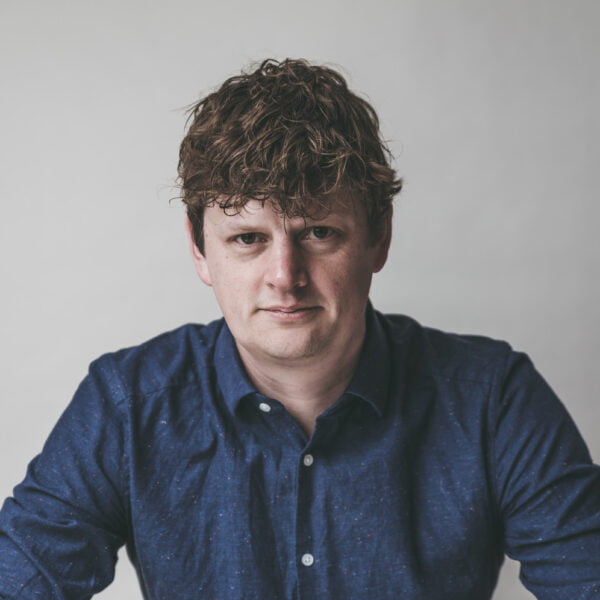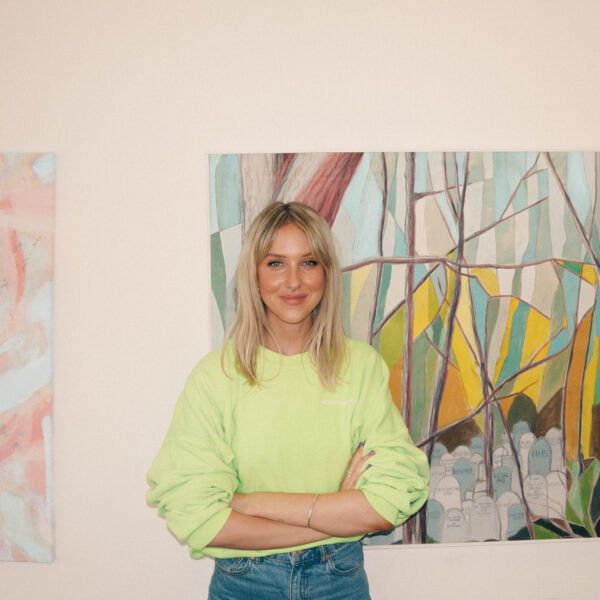
Natasha Collie
Senior Brand Marketing Manager at Penguin Random House UK
At the start of the year, Ladybird Books approached Sonder & Tell with a dream brief. In 2021, a year that’s been particularly challenging for...
In conversation with
Founder and Designer at Lydia Bolton

Her designs have been on-stage at Glastonbury and she’s reworked Manchester United’s 2022/23 adidas kits. Lydia Bolton is proof that speaking the same language as your customer is powerful. It’s helped take her brand from Instagram account to international business. Lydia’s eponymous brand upcycles unwanted textiles into covetable womenswear, and her sustainable luxury ethos has caught the eye of big names like Nike and River Island. We spoke to her about staying true to brand values, the importance of partnerships and how contributing to change doesn’t have to be overwhelming.
It wasn’t necessarily connected to the work I had or the company I was at really, it was more about the stories of the dark side of fashion and realising there are other places in the world covered in unwanted textiles. It made me question whether I wanted to continue doing and contributing to that.
I knew I wanted to do sustainable fashion so I left my job and studied an online course at the Centre for Sustainable Fashion, where I learned a lot about production and waste. I was really drawn to this huge amount of waste, and knowing my skills, I knew I could use them to contribute to a solution to the problem.
Talking about my brand purpose, in the course they encourage you to have a mission statement. Mine was ‘remaking second hand textiles’, so it kept growing from there. The timing was perfect for me because I received a message from a singer who requested an outfit for performance on BBC introducing stage at Glastonbury, and they loved the idea that my focus was with second hand materials. This allowed me to put my idea into practice and to apply the thoughts into making something. It naturally progressed from then and more opportunities came in.
The storytelling aspect is so important because we know we all should be more sustainable. But with stories we can engage on the why, and people love being part of the process. Sharing what that item used to be and how I’m transforming it, it’s something my audience enjoys watching. It also helps you understand the journey of the item.
“Contributing to change doesn't have to be overwhelming. My brand is about empowering and showing people how to do it so they remake it themselves.”
The project needs to be centred around upcycling and using dead stock or second hand materials. It should also encourage educating people on the topic and motivate them to do it themselves, giving them some upcycling skills they can put into practice in the future. In the workshops, people usually bring something old they already own, or the brand offers some dead stock to use.
Contributing to change doesn’t have to be overwhelming. My brand is about empowering and showing people how to do it so they remake it themselves. These partnerships help me share some of my skills and give me access to new audiences who might be a bit sceptical about upcycling. Also, everyone has a fun time at the workshops, so it’s a positive experience for them. Sustainability and upcycling can be fun and encouraging!

I think it’s hard for big brands because they are so established. But authentic and honest access through partnerships and working with collaborators who are sustainable and true to their values is always a step forward, to build conscience, and inspire change. Also investing in campaigns that are truly honest and sustainable, and working with sustainable consultants to be as conscious as possible within their own practices.
I don’t expect them to be perfect or instantly change their way of operating. But make an effort, and be honest throughout the journey. Even 1% of change would have a huge impact coming from a global brand.
I’d love to see us changing the view of how disposable everything is. We have such a wasteful culture, from food to fashion, that we forget the whole journey of the product. A ‘cheap’ top, made from polyester – which is basically crude oil running in the planet, is worn three times and then thrown away. The thing not many people know is that this top will be on the planet for 200 years because it won’t degrade. We need to be more conscious of the impact our decisions have on the planet.

Senior Brand Marketing Manager at Penguin Random House UK
At the start of the year, Ladybird Books approached Sonder & Tell with a dream brief. In 2021, a year that’s been particularly challenging for...

Founder Of Simple Politics
Talking about serious issues doesn’t mean defaulting into a serious tone of voice, or using complicated language. If anything, accessibility, clarity and a touch of...

Brand & Community Manager at Homethings
Creating a tone of voice from scratch can be challenging. But a blank slate to work from also mean there’s room for something a bit...

Co-Founders at Harris & Hayes

Head of Europe at The Mills Fabrica